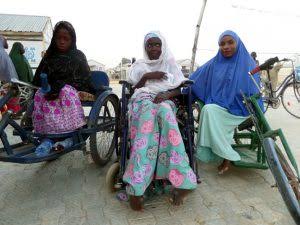Delegates attending a special side-event during the 66th session of the UN Commission on the Status of Women (CSW66) have called for a greater focus on reducing the structural discrimination caused by gender, age, and disability by providing more resources and technical support.
They urge governments and civil society to adopt an intersectional approach that empowers women and girls with disabilities by consulting and involving them in developing the programmes that affect them.
Gender, disability and age are key drivers of inequity and discrimination. When they intersect, their negative impact is compounded, meaning adolescent girls with disabilities, in particular, face overwhelming barriers to realising their health and rights.
According to Gillian Turner, Senior Health Advisor, UK Foreign, Commonwealth and Development Office (FCDO), “People with disabilities have the same physical and mental health needs as the rest of the population, but they face higher healthcare costs, more barriers to accessing services and less health coverage.
“This impacts on their right to lead an independent life. We want people with disabilities everywhere to be able to access and use affordable, accessible and quality health information, supplies and services throughout their life.
“We know that multiple barriers can and must be addressed. To do this effectively, we must include and amplify the voices of people with disabilities; they must be part of conversations around matters affecting them directly.”
Equity and Inclusion for Adolescent Girls Everywhere: Policy and advocacy approaches to promote disability inclusion is co-sponsored by the Foreign, Commonwealth and Development Office of the UK, the Ministry of Health and Family Welfare of the Government of Bangladesh, the United States Mission to the United Nations, PMNCH, the global alliance for women’s, children’s and adolescents’ health, and the International Disability and Development Consortium (IDDC).

